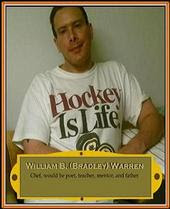I was around ten years old when my curiosity overcame me and I could no longer resist asking my mother, "Mom, how do you cook?" She paused for a moment, but no longer than the blink of her eye, then said the truest, but hardest to learn lesson life has ever taught me. "It's common sense."
Well, that sure sounded easy enough, but it took practically thirty years of blood, sweat and tears, and a whole lot of diligent observation of not just regular, common everyday people making the same mistakes over and over again.
Over those years, I'd worked with many lazy, marginally skilled chefs who wasted their time on fantasy football, pointing a finger, or assigning blame when anything went awry. It's as if they either had no knowledge to impart, or were just afraid some obscure intern might actually become as good or better than them.
Then there are those rare few who lead by example, who know how valuable mentorship and developing a culture of accepting nothing less than sheer excellence need be.
Karl Vogelbacher, my mentor, has an impeccable record that is easily found on the internet, although now he has accepted a position as Executive Chef, I guarantee you'll then know exactly why this young man from Switzerland was the one person whose work ethic and eagerness to teach was the primary inspiration for me, and my continuing efforts to cultivate otherwise typically overlooked immigrants, high school undergraduates, or struggling single mothers willing and eager to pay close attention to detail, show up every day, and expect the same from their peers as themselves. But firstly, it required them to set an example, then in two years--quite possibly less-- they may have learned sooner than I what it took me to grasp over a career of trial and error.
Hospitality
"The best advertisement money can't buy is word of mouth."
When you're in a position of management, you can only be as good as the staff you must rely upon. You can't do it all by yourself. The better they are, the better you are, and the better leader you can be.
After twenty years of applying myself with diligence and a lot of hard work, I finally made sous chef. Although I was only second in charge, I still had to manage a bustling hotel kitchen which consisted of three separate restaurants, a full service `round the world buffet, plus an average of over two million dollars per year in added revenue when you throw in all the lavish banquets, and 24-7 upscale room service to boot. On top of this already sizable workload, the employee cafeteria would offer the entire hotel staff a breakfast, lunch and or dinner. Of course, those were also promptly prepared by a staff whose divided attention required a true balancing act to pull off smoothly. All day, every day, those are the real rock stars of the show making it happen behind the scenes.
When the crew is in sync and everything is running smoothly, it's then my turn to do what I enjoy most. Walking the ballroom or dining room floor in my brightest white chef coat and responding to the many wonderful compliments was never a gamble, but literally a certainty. The risk of having to answer to a disgruntled guest was extremely rare, but if so, I would immediately seize upon the moment to address their issue personally, usually ending with the patron(s) leaving satisfied far beyond their expectations.
See, just meeting expectations is for the other guys. We commit ourselves and staff to consistently exceed the every expectation of a guest while maintaining the highest of standards in quality and excellence. It's no simple task, but there's absolutely no way I could ever accomplish such daily feats alone. The fact is, I can only be as good as the team. A team that reflects directly upon me, their success or failure is solely in my hands. And failure is flat out unacceptable.
When the daily madness of the rush is done and the kitchen settles down, the next most satisfying part of my day is when I get to spend time teaching and training what I refer to as students, both verbally and physically. I make sure the interns we played host to, who may come from one of the many exceptional culinary schools around the world, are closely exposed to such things a book will not and cannot teach. Because believe me, there are many. So in my kitchen, expect to treated as a student, not just another employee.
I always made my position clear about the job and how I feel about work ethic with this straight-forward statement:
"If you don't like your job, then find a way to like it, learn a way to love it, or find one you can enjoy. Because if you don't, you'll just be miserable. All you need is pride in what you do and the job gets a whole lot easier. Besides, it's the only way you can be the very best you can be."
"Pride Breeds Excellence"
One thing I learned as chairperson of the Values Committee for Red Lion Hotels is that word of mouth is the best advertisement money cannot buy. One bad comment spreads like wildfire, but when there are so many great ones going around, success is ensured.
Enjoying my job was not a conscious decision. Even I wasn't aware of this until a co-worker asked me why I always seemed so darn happy all the time. It was then I realized, "Wow, I actually do love my job."
A culture of mentor-ship is the cornerstone of confidence, knowledge, and ultimately, job satisfaction.
W.B.Warren

